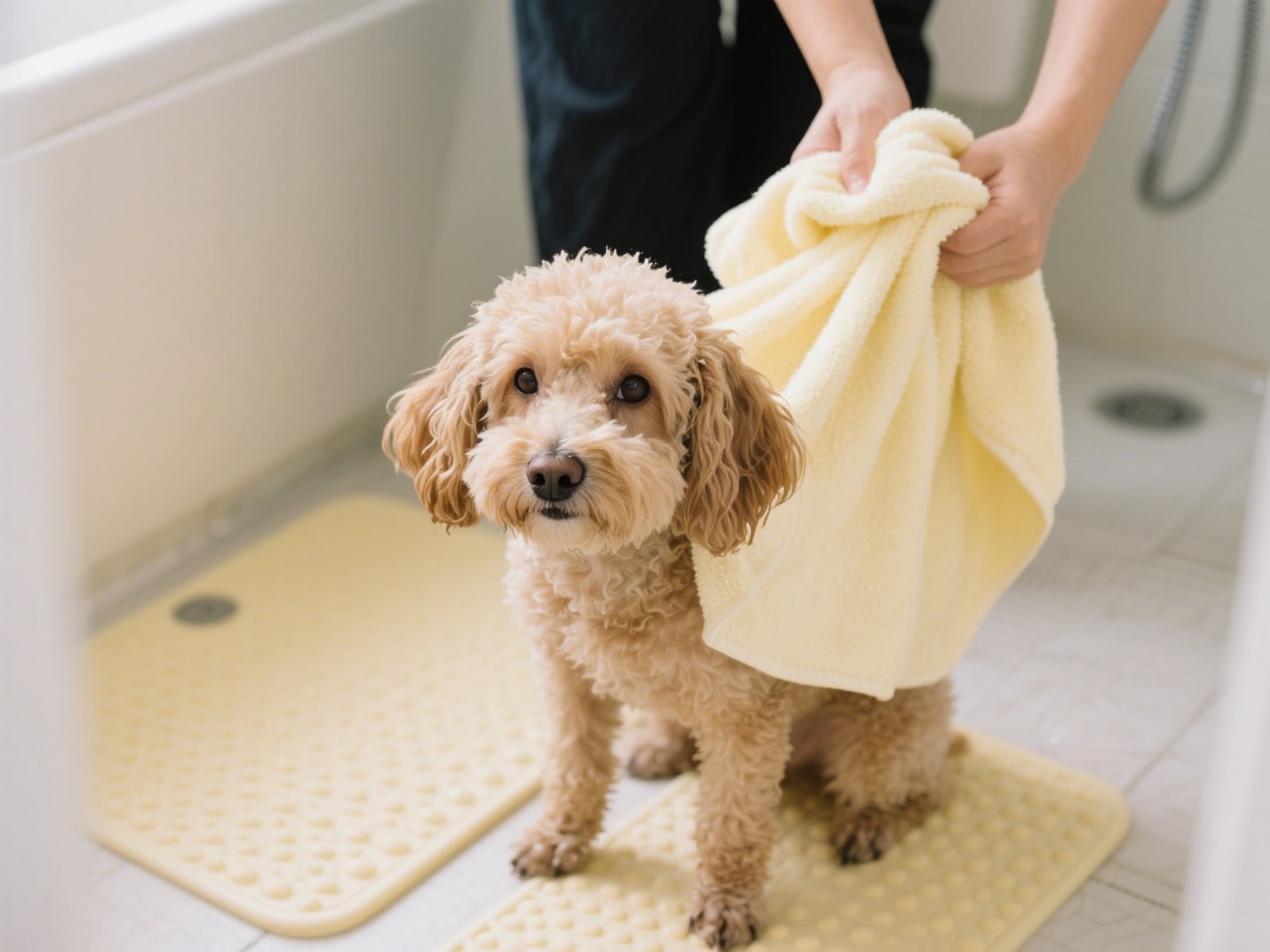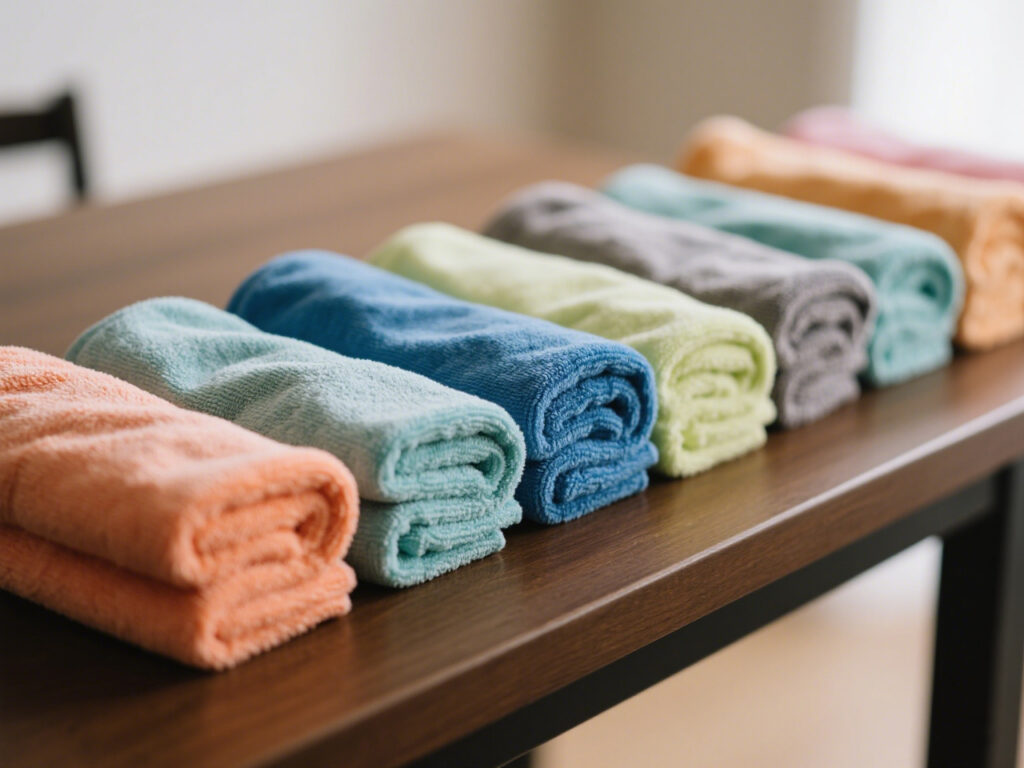Have you noticed that your absorbent towels gradually turn stiff and lose their absorbent feel, making it hard to keep towels soft over time? This is a common problem with cotton, linen, and microfiber towels, but it doesn’t have to be permanent.
I’ve tested simple towel care methods with my family and friends, and now every towel in their homes stays fresh and fluffy.
In this article, I’ll reveal why towels become hard, how to restore them, and the best ways to keep them soft and absorbent for the long run.
What You Should Know About Mineral Buildup and Detergent Residue
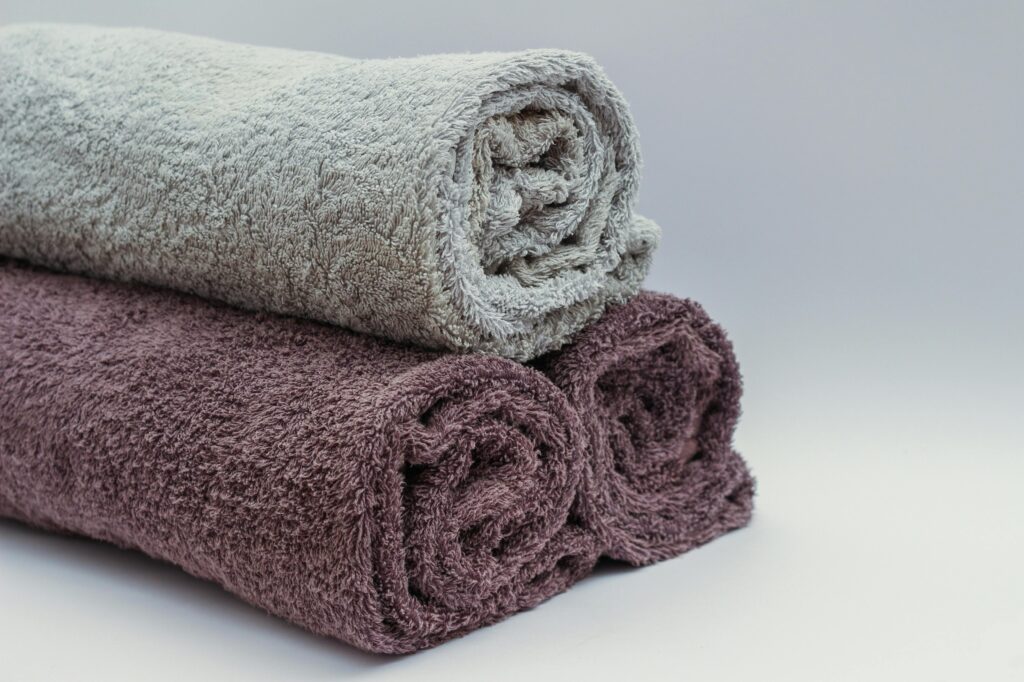
Mineral Deposits
The tap water we use daily contains minerals like calcium and magnesium.Over time, these minerals build up on the fabric, leaving behind a hard crust that even fabric softeners can’t fix.
According to a WHO report, hard water with calcium and magnesium is a common problem worldwide. This can affect how your laundry feels.
- If you happen to live in a hard water area, one simple solution is to use a water softener or give your towels a refreshing soak in white vinegar once a month.
The acetic acid in vinegar reacts with calcium and magnesium ions. This turns them into soluble salts. (From the WHO report on calcium and magnesium in drinking water.)
In other words, it helps break down the mineral buildup so your absorbent towels can go back to being soft, fluffy, and absorbent again.
- Extra Tip: If vinegar smell bothers you, you can add a few drops of essential oil (like lavender or lemon) during the rinse. Not only does it neutralize the vinegar scent, but it also leaves your towels smelling fresh.
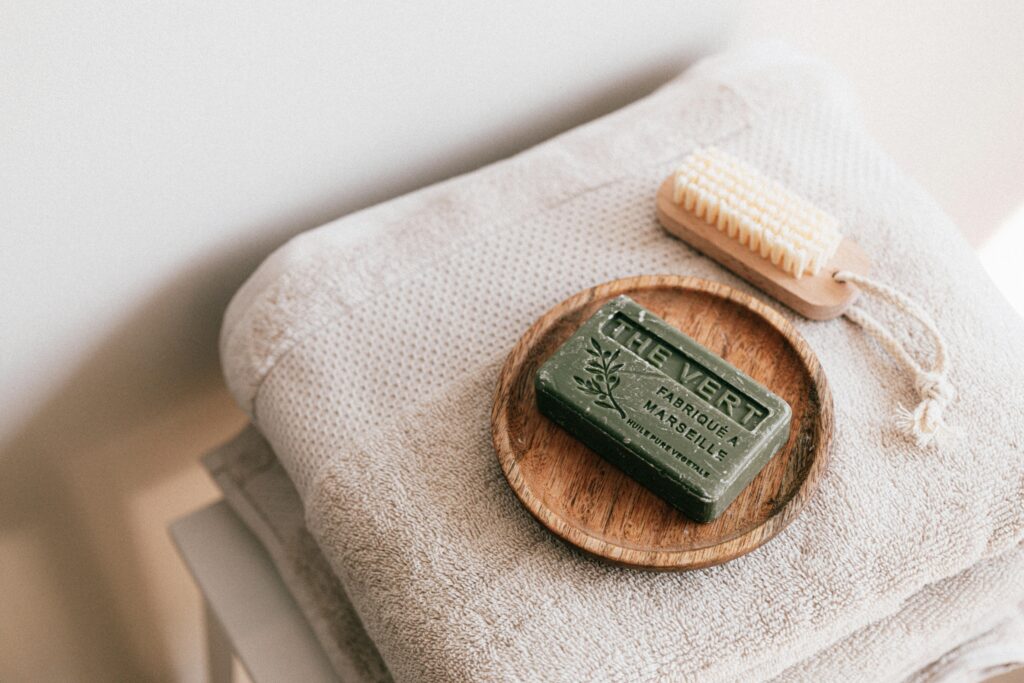
Detergent Residue
Here’s another sneaky culprit behind stiff towels—using too much detergent or not rinsing it out properly.
This creates an invisible layer on the towel fibers that can attract dirt and even trap fabric softener, reducing the towel’s absorbency.
According to Real Simple, more soap definitely doesn’t mean cleaner laundry—it often does the opposite.
- Solution: Always use the recommended amount of laundry detergent. If possible, choose a neutral and fragrance-free laundry powder. This simple habit can greatly help keep towels fluffy!
- Tip: To make sure no detergent or mineral built-up residue is left on your dry towels, it’s a good idea to run an extra rinse cycle after washing.
- Another helpful habit is to avoid pouring detergent directly on towels. Instead, dissolve detergent fully in the water or use liquid detergent dispensers. This prevents clumps of soap from sticking to fabric loops.
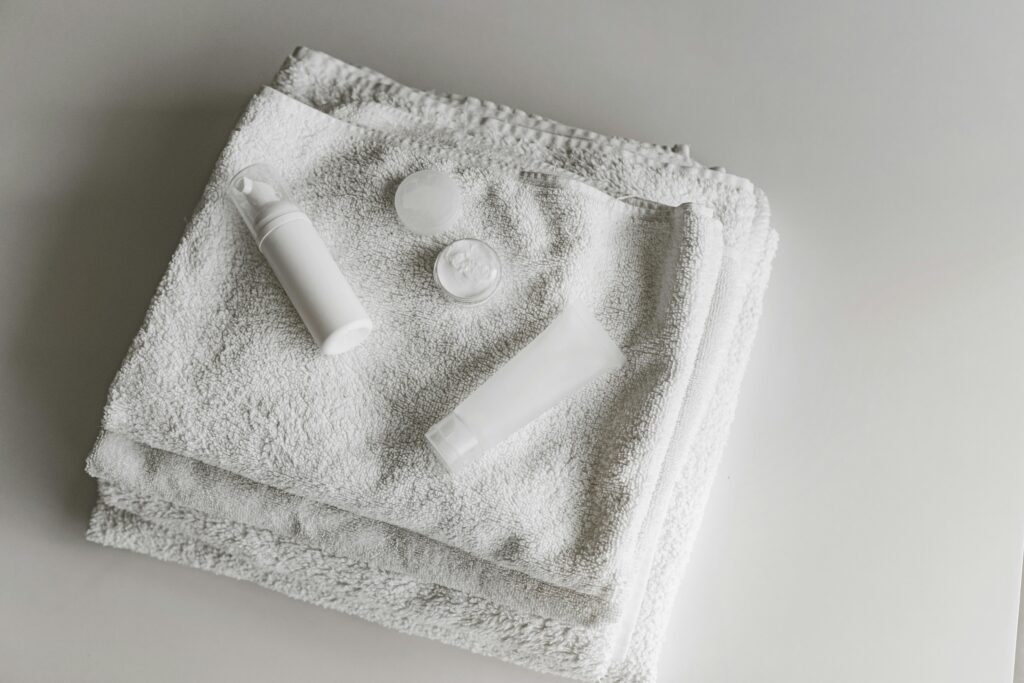
Moisture-Related Effects
Our towels are often in damp places for a long time. This makes the fibers lose their stretch, and the loops curl up. Then the towels become flat.
- Preventive tip: I recommend drying towels in a well-ventilated area to keep them dry and fresh.It’s also a good idea to rotate multiple towels.
- After towels are fully dry, store them in a clean, dry linen closet. This prevents moisture from softening the fibers or causing mildew, keeping your towels fresh and ready for use.

How to Wash Towels for Maximum Absorbency
Have your towels lost that soft, fluffy feel? Don’t worry—I’ve got some easy tips to bring them back to life.
1.Hot Water & Gentle Detergent
Washing towels in hot water helps remove dirt, bacteria, and mineral deposits from the fibers. Use a mild laundry detergent to avoid damaging the fibers.
- Tip: Avoid using chlorine bleach unless absolutely necessary. For sensitive skin or delicate towels, choose a non-chlorine bleach.
2.Baking Soda Boost
If you add half a cup of baking soda to the wash, it helps make water softer and stops bad smells.This is especially effective if your towels have waxy build up from previous washes. Baking soda also helps towels absorb moisture better, giving them a renewed fluffy texture.
3.Vinegar Rinse
A rinse with white distilled vinegar is a game-changer.Add white vinegar only when rinsing. It helps remove soap, balance pH, and make towels absorb water again.
- Tip: Skip dryer sheets when drying your towels—they leave a detergent film that reduces absorbency and can contribute to a musty smell.
4.Wash New Towels Before Use
Even brand new towels may have surface chemicals or coatings that decrease absorbency. Washing new towels first ensures they are clean,feel soft, and ready to absorb water efficiently.
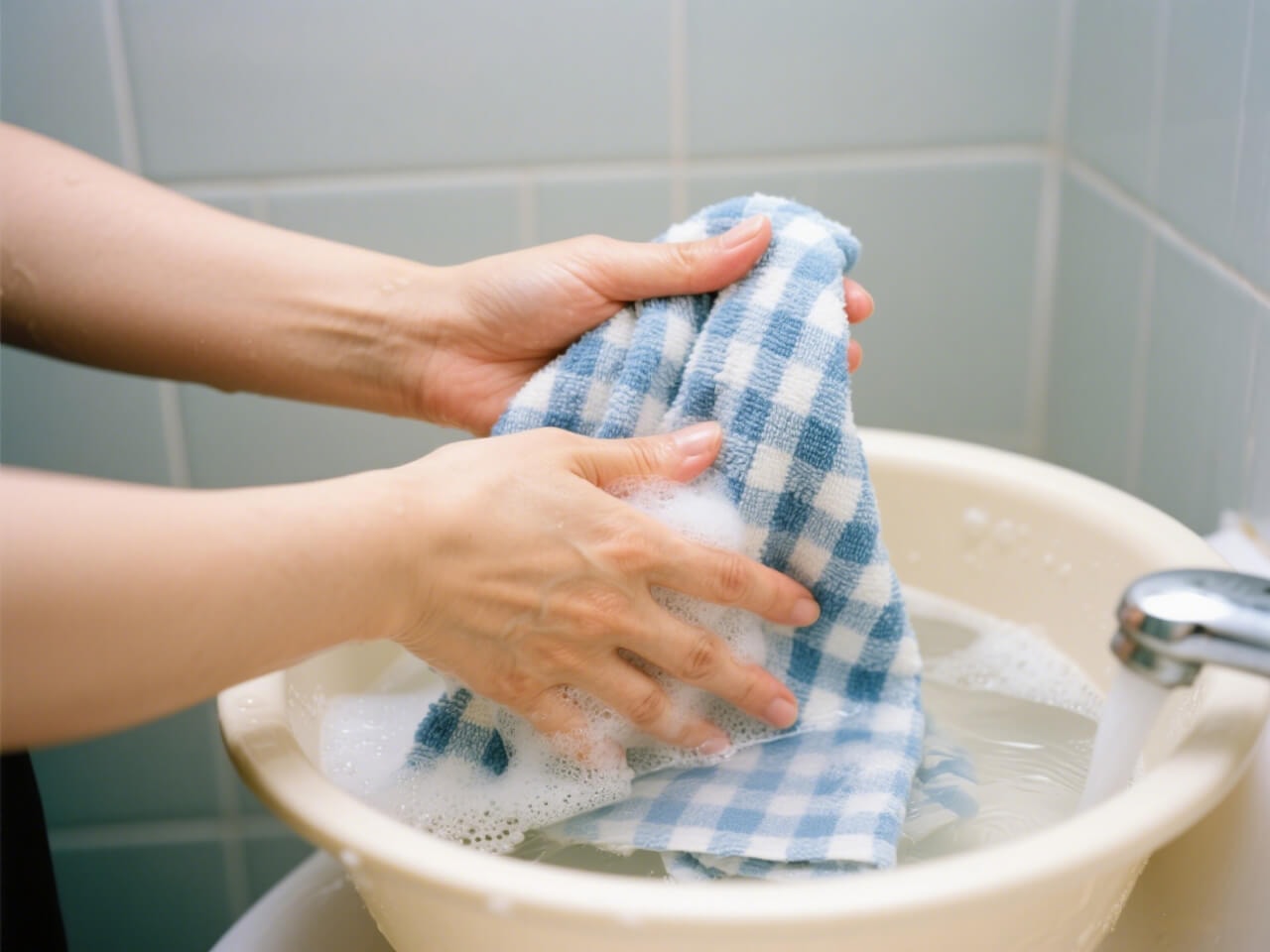
Introduction to Towel Care
Towels need proper care to stay soft and absorbent(Especially our bath towels). Avoid using fabric softeners, as they leave a waxy coating that reduces absorbency.
Here are a few suggestions.
- Separate Laundry: Wash towels separately to prevent cross-contamination and preserve fluffiness.
- Right Detergent: Choose gentle detergents that preserve fibers. Avoid excessive use that leads to stiffness.
- Regular Maintenance: Frequent washing and drying help extend towel life and efficiency.
Below, I have created a clear table to list the “Towel Care Dos and Don’ts”
| Do | Don’t |
|---|---|
| Wash in hot/warm water | Overload the washing machine |
| Use white vinegar for rinse | Use too much detergent |
| Hang or tumble dry on low | Use fabric softeners |
| Wash new towels before first use | Mix with lint-shedding laundry |
Choosing the Right Towels
Honestly, picking the right towel can really help keep it soft and fluffy for longer. Here are a few tips I always follow when choosing towels.
1.High-Quality Fibers
Purchase microfiber,cotton or linen towels. They last way longer than the cheap towels and soak up water so much better.
When choosing towels, look for high thread count, breathable fibers, and labels that say “absorbent” or “fluffy”.
2.Reviews and Labels
I always check the reviews and care labels for maintenance tips before buying bath towels.
In my experience, towels made with natural softeners or microfiber stay fluffy much longer than others.

Preventing Build-Up and Odors
No one likes moldy, smelly towels. You can easily prevent buildup and odors before they become a problem by following these tips.
- Regular Hot water Wash: Prevents bacteria and mildew growth, keeping absorbent towels fresh.
- Natural Fabric Softener or Dryer Balls: Reduces static and prevents residue build-up.
- Moderate Detergent Use: Using excess detergent leaves a waxy coating on fibers.
- Dry Properly: Line dry or machine dry on low heat to preserve softness.
- Clean Machines: Regularly clean your washing machine and dryer to prevent transfer of residues.
- Avoid Leaving Wet Towels in the Hamper: This prevents mold growth and musty smells.
- Use wool dryer balls to maintain fluffiness.

Maintaining Towel Performance Long-Term
If you want your towels to stay soft, fluffy, feel soft to the touch,and absorbent for the long haul, here’s what I do:
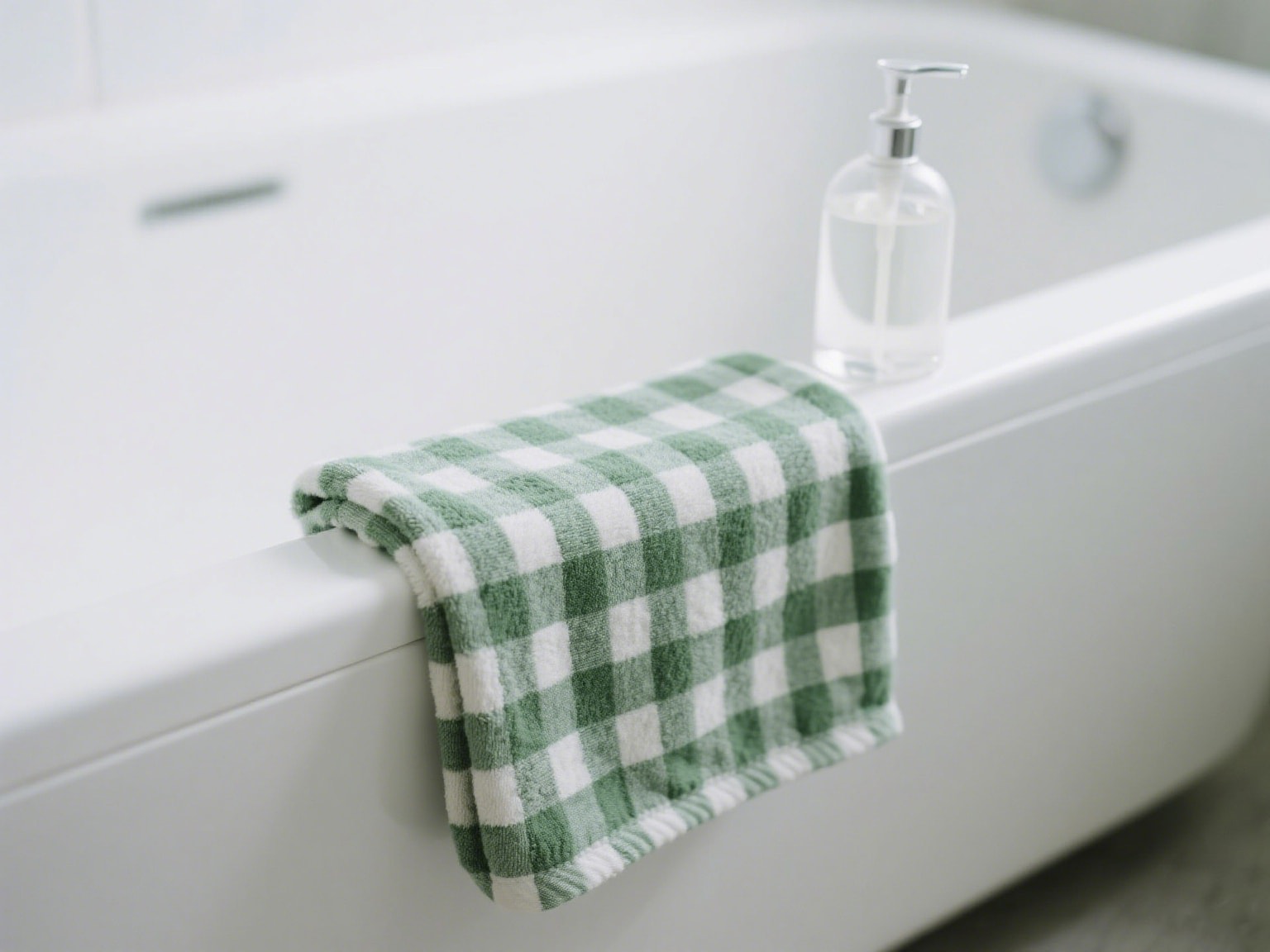
- Wash Separately: Always wash towels on their own to avoid lint from other laundry.
- Avoid Overloading: Never wash too many towels together, as this will ensure that they are thoroughly rinsed.
- Use White Vinegar Occasionally: A splash of white distilled vinegar now and then balances the pH and helps get rid of any detergent residue.
- Low Heat Tumble Dry: Helps fibers stay soft and fluffy towels keep their absorbency.
- Avoid Extra Detergent: Overuse of detergent can harm towel fibers and decrease absorbency.
- strip towels periodically:For households with kids or heavy gym use, towels are often exposed to sweat, lotions, and oils. In this case,consider stripping towels once every 2–3 months.
Quick Tips:
- Soft towel = maximum absorbency.
- Fluffy fibers hold more moisture.
- Regular maintenance extends towel life.
- Rotate washing cycles with hot water.
- Towels used for cloth diapers or oily surfaces may need extra attention.
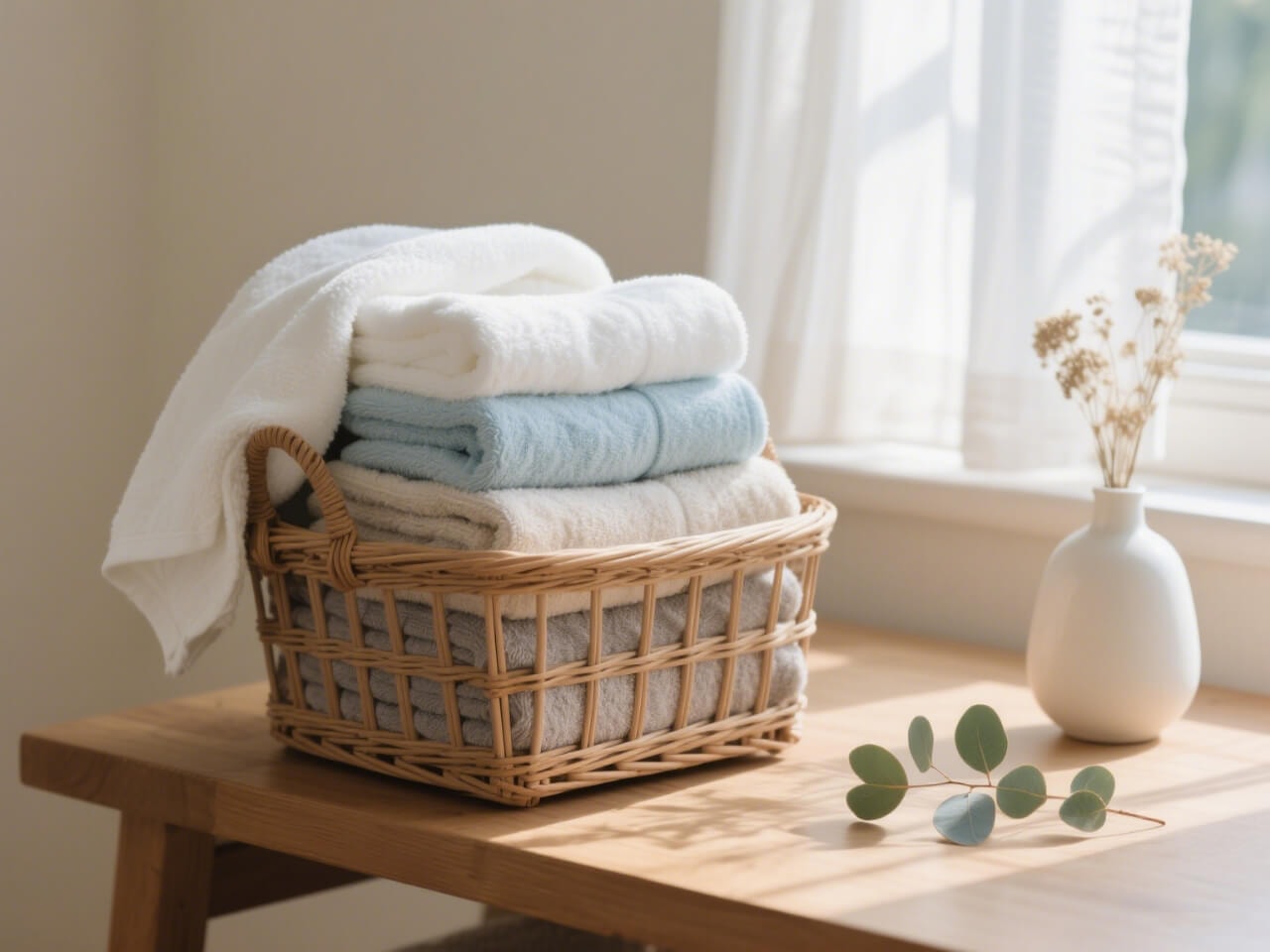
- Common Mistakes to Avoid
| Mistake | Fix |
|---|---|
| Overusing detergent | Measure correctly, extra rinse |
| Fabric softeners | Skip or use natural softeners |
| Humid drying | Use ventilated space |
| Washing with oily laundry | Separate loads |
Conclusion
- Keeping towels fluffy, soft, and absorbent requires attention to washing, drying, and storage.
- Using hot water, baking soda, white vinegar, and wool dryer balls can restore and extend the life of towels.
- Avoid using too much detergent, fabric softener, or dryer sheets to keep your towels working their best. 😊
Whether you’re washing cotton towels, linen towels, or using microfiber towels, proper care ensures they absorb moisture, stay soft, and remain high quality towels for years to come.
Choose Manywell’s microfiber for superior absorbency
- If you want greatest absorbency, microfiber towels are ideal. They absorb water like a sponge, remain soft even after many washes, and are perfect for home, car, or hotel use.
Microfiber vs. Cotton Towels
| Feature | Microfiber | Cotton |
|---|---|---|
| Absorbency | Very High | High |
| Softness | Stays Soft | May stiffen |
| Durability | Long-lasting | Moderate |
| Drying Time | Quick | Moderate |
| Maintenance | Easy | Moderate |
Our microfiber towels tick all these boxes, making cleaning easier and more efficient so you can get more done with less effort
Give them a try: Place an order today and even get a sample to feel the softness, absorbency, and quality for yourself!
Another advantage of microfiber is its versatility. Besides bathroom use, microfiber towels are perfect for car care, gym workouts, and even quick spill clean-ups in the kitchen. Because they dry quickly, they are less likely to develop odors compared to cotton.
